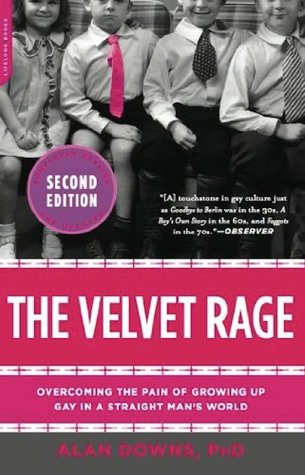More on this book
Community
Kindle Notes & Highlights
Read between
December 27, 2016 - January 3, 2017
Not surprisingly, the long-term effect was an inability to validate ourselves. The ability to derive internal satisfaction and contentment didn’t emerge from our adolescence as it should have. Instead, we sputtered along looking to others for the confidence and well-being that we needed to protect ourselves from being overcome with shame.
The wound is the trauma caused by exposure to overwhelming shame at an age when you weren’t equipped to cope with it.
To experience such shame, particularly during our childhood and adolescent years, prevents us from developing a strong sense of self.
This emotional struggle manifests outwardly as intense relationships that are often swiftly abandoned and subsequently denied, leaving one or both men stunned and heartbroken.
They inevitably see themselves as “nice guys” who have been treated unfairly, either by specific individuals or, as in Donald’s case, by fate itself. Most often, they have little insight into the connection between unfulfilled sexual yearnings and their current distress.
The gay man who resolves his crisis of identity and comes to honest terms with his sexual attraction to men is the man who will resolve his depression.
When you confront your crisis of identity and face the truth of who you really are, life begins to take on an entirely new look.
The meaning of life is rejected, revised, destroyed, and reinvented.
Some retreat into a period of mostly silent contemplation.
Resolution is the manifestation of a gay man who is no longer holding the core belief that he is flawed and unacceptable, and consequently spending most of his energy managing, silencing, and avoiding shame.
A gay man’s first romantic relationship with another man is almost as influential in our lives as our relationship with our fathers. The excitement of allowing yourself to freely love another man. The freedom of finally allowing yourself to have what you want. The joy of sexual fulfillment. The closeness of male companionship. The ecstasy of new love. All of these things converge in that first romantic relationship, giving it exceptional power to imprint upon our lives like no other relationship ever will again.
memories of that trauma remain fresh and active throughout his life,
In stage three he accepts that he has experienced past relationship trauma, and sets about to find a way to diminish its effects on his life.
He no longer must prove his worth and sexual validity by seeking out sexual gratification
Continuously replaying painful memories, talking about your pain with others, or exposing yourself to situations that keep the memories active only function to keep you in distress.
“Walking” away from distress means simply that you must use your behavior to change the way you are feeling and to reduce the distress. Once you get the distressing feelings down, you can then consider more effective options for getting what you want—as opposed to blowing up or overreacting. Remember, rarely when feeling intense emotions do you act in your own best interest.
Because so many of us learned to live our lives according to the expectations of others (rather than following our own dreams), we became experts at holding other people responsible for our feelings.
It is here, in the learning and practicing of life-changing skills, that we are transformed from being emotional adolescents who struggle to find some lasting contentment into men who are grounded in themselves, at peace, and fulfilled.


